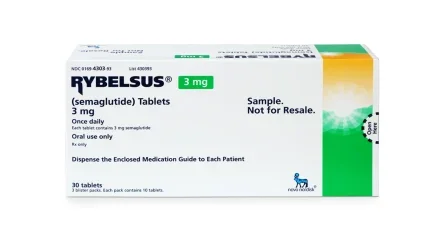
Novo Nordisk said that semaglutide (Rybelsus) in its oral formulation has shown promising results in the SOUL cardiovascular outcomes trial of patients with type 2 diabetes (T2D).
This double-blind, randomised study evaluated oral semaglutide against a placebo.
It aimed to prevent major adverse cardiovascular events (MACE) in patients with T2D and established cardiovascular disease (CVD) or chronic kidney disease (CKD).
The trial, which started in 2019, involved 9,650 participants. As part of standard care, 49% of participants received SGLT2 inhibitors during the trial.
The study met its primary objective, showing a statistically significant 14% reduction in MACE for those treated with oral semaglutide compared to placebo.
The primary endpoint was the first occurrence of MACE, which includes cardiovascular death, non-fatal myocardial infarction, and non-fatal stroke.
All three components contributed to the superior reduction in MACE observed with oral semaglutide.
In addition, the oral drug demonstrated a safe and well-tolerated profile, consistent with findings from previous studies.
Novo Nordisk executive vice president and development head Martin Lange said: “We are pleased to see that the results from SOUL demonstrate that oral semaglutide reduces the risk of cardiovascular events and that the benefits of oral semaglutide come on top of standard of care.
“Approximately one in three adults with type 2 diabetes also have cardiovascular disease; therefore, it is crucial to have therapies that can address both conditions.”
Novo Nordisk plans to file for regulatory approval to expand the label for Rybelsus in the US and the European Union (EU) around the year-end.
The Dutch pharma company plans to announce detailed results from the SOUL trial in 2025.
The US Food and Drug Administration (FDA) first approved oral semaglutide, branded as Rybelsus, in September 2019 for treating adults with T2D.
In January 2023, the FDA updated the label, allowing Rybelsus to be used as a first-line treatment for T2D patients.
Earlier this year, in March, the FDA approved the injectable formulation of semaglutide (Wegovy), to reduce the MACE risk.






